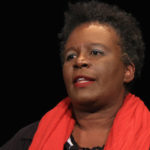Mercy Corps report urges global community to address underlying grievances of an overlooked generation
WASHINGTON, Feb. 17, 2015 — Ahead of this week’s White House Summit on Countering Violent Extremism, a new three-country report by global humanitarian organization Mercy Corps, Youth & Consequences: Jobs, Injustice and Violence evaluates key contributors to youth engagement in conflict, finding that experiences of injustice, rather than unemployment or poverty, propel young people to take up arms.
With more than half the world’s population under 30 and 300,000 child soldiers fighting in conflicts around the globe, Mercy Corps urges the international community to reevaluate its collective approach to deterring youth from engaging in political violence.
“With youth forming the backbone of many paramilitary and terrorist organizations, efforts by the Obama Administration and others to counter violent extremism must recognize the critical importance of addressing the underlying grievances driving young people to join these groups,” says Neal Keny-Guyer, Chief Executive Officer of Mercy Corps. “The Administration’s renewed focus on approaches to preventing violence presents a golden opportunity for the U.S. to invest wisely and appropriately in adolescents living in fragile states.”
In addition to broadening the focus of vocational and civic engagement programs, Mercy Corps recommends: developing strategies informed by rigorous analysis of key factors driving youth to violence; supporting longer term programming with built-in flexibility to adapt to changing circumstances on the ground; creating permanent Youth Coordinator positions in development agencies; and including young people in program design and implementation. Mercy Corps also urges governments and NGOs to direct funds to meet the needs of adolescents (between the ages of 12 and 18), who are often overlooked as a key demographic.
“Youth programs, including vocational or civic engagement trainings, must create viable opportunities for youth,” says Keith Proctor, senior policy researcher at Mercy Corps and author of the report. “They should also be paired with meaningful governance reforms that address the underlying causes of frustration.”
The Mercy Corps report is based on youth program assessments and focus-group interviews from June to August 2014 across Afghanistan, Colombia and Somalia, three countries with large youth populations and plagued by conflict and insurgent groups. Read or download the full report, Youth & Consequences: Jobs, Injustice and Violence.
About Mercy Corps
Mercy Corps is a leading global humanitarian agency saving and improving lives in the world’s toughest places.
/PRNewswire-USNewswire/











